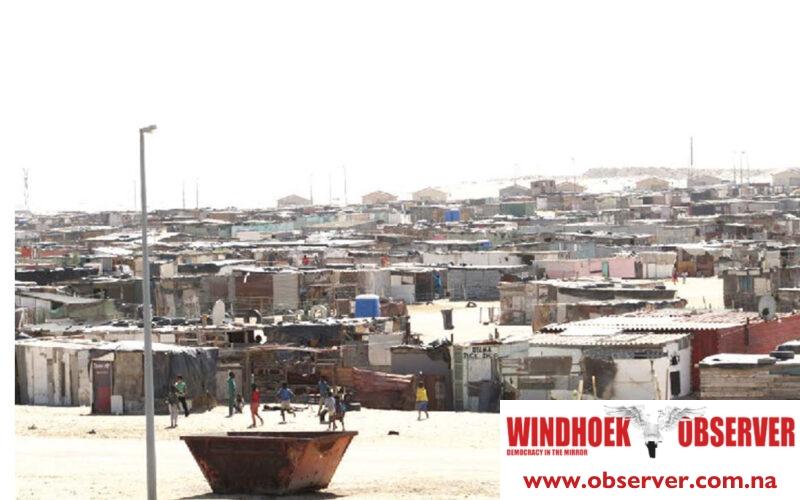Allexer Namundjembo
Walvis Bay residents have rejected a proposed 12% “shack levy” suggested by the municipality recently.
The idea was met with criticism from community leaders, who argue the levy targets the poor and fails to address the root causes of the town’s housing crisis.
Former Walvis Bay urban regional councillor, Knowledge Iipinge, described the proposal as an act of class warfare.
In a letter addressed to the municipality and seen by Windhoek Observer, Iipinge criticised the council’s plan to tax informal housing structures.
“Instead of dismantling the systemic violence of housing apartheid, you seek to criminalise poverty and legitimatise your own failures by taxing the very shacks your negligence is forcing families into on a daily basis,” he wrote.
Iipinge called for the immediate withdrawal of the levy. He urged the municipality to instead focus on land servicing and housing development.
“Prioritise the servicing of land and the construction of housing to improve the living standards of residents living in shacks. Expropriate and redistribute all unused land within the Walvis Bay Local Authority area given to property developers and not yet serviced for more than 5 years,” he said.
Walvis Bay rural regional councillor Donatus Tegako also rejected the levy.
He called it a “bad idea” and said residents already face harsh living conditions.
“Did the council ever provide land to people, and they refused? It’s inhumane and cannot be tolerated. I will advise the municipality to provide serviced land to the people and have them pay land taxes and rates as usual,” he said.
He added that many families already pay high fees to homeowners for backyard shacks and questioned the fairness of further taxing them.
“Now you are proposing ghetto levies on landless people? It will never happen in Walvis Bay,” he said.
Walvis Bay urban regional councillor Deriou Andred Benson said the shack levy is still only a suggestion.
He explained that it was intended as a way to regulate backyard shacks and raise funds to improve community infrastructure, such as the sewerage system.
“There are some benefits to introducing such levies. Those funds can then be appropriated to improve the needs of the community, such as the improvement of sewerage infrastructure in the town. Currently, backyard shacks are contributing to the already deteriorating sewer system and putting pressure on the municipality,” he said.
Benson added that the funds could also help improve emergency response in informal areas.
“Thus, fire response or emergency teams can be prepared when tragedy strikes,” he said.
He acknowledged, however, that residents are under financial pressure and that backyard shacks remain a more affordable option.
He urged the municipality to focus on providing serviced land and relocating communities to formal areas.
“The municipality should get around a table with Urban and Local Development, as well as local stakeholders like the fishing and mining sectors. These local stakeholders can be brought on board to assist in servicing land and providing services to their employees, as they did in the past, such as Rossing, which built Arandis and part of Swakopmund, and fishing factories in Walvis Bay,” Benson said.
Walvis Bay Mayor Trevino Forbes referred questions to the chairperson of the management committee, Richard Hoaeb, who did not respond.
The Windhoek Observer sought clarity on whether the levy was discussed with residents and how it would benefit the community, particularly in light of recent fire incidents.
Municipality CEO Victoria Kapenda said she could not comment.
“At this stage, we cannot comment,” she said.




